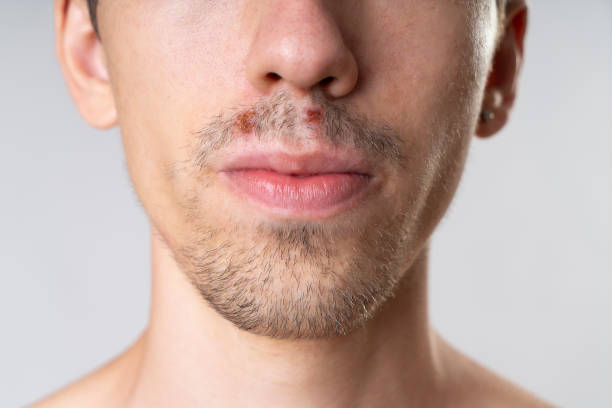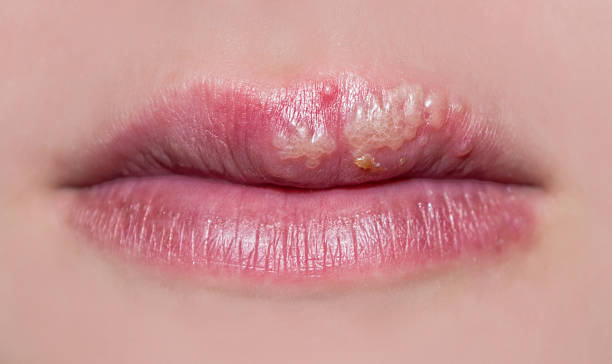Cold Sores: Symptoms and Treatment
Cold sores, also known as fever blisters, are small, fluid-filled blisters that develop on or near the lips. They are caused by the herpes simplex virus (HSV-1) and are highly contagious. While they can affect people of all ages, cold sores are most common in young adults and children. In men, cold sores can be especially noticeable and embarrassing, making it important for them to understand the symptoms and available treatments.
Symptoms of Cold Sores in Men
The symptoms of cold sores in men can vary from person to person, but the most common symptoms include:
Tingling or itching around the mouth: A few days before a cold sore appears, many people experience a tingling or itching sensation in the area where the sore will develop. This is the first sign that a cold sore is about to appear.
Blisters: The next stage is the appearance of small, fluid-filled blisters. These blisters can be painful and may burst, leaving behind a raw, open sore.
Pain: Cold sores can be quite painful, especially if they are located on the lip. The pain may be relieved by applying a cold, damp cloth to the area.
Swelling: The area around the cold sore may become swollen, making it difficult to eat or drink.
Redness: The skin around the cold sore may become red and inflamed, which can be quite noticeable, especially in men.
Crusting: As the cold sore heals, it may form a crust, which can be itchy and uncomfortable.
Treatment for Cold Sores in Men
While there is no cure for cold sores, there are several treatments available that can help reduce the severity and duration of symptoms. The best treatment will depend on the individual, but some of the most common treatments include:
Antiviral medications: Antiviral medications such as acyclovir, valacyclovir, and famciclovir can help reduce the duration and severity of cold sores. These medications work by blocking the replication of the herpes simplex virus. They are most effective when taken at the first sign of symptoms.
Topical creams: Topical creams containing antiviral agents, such as acyclovir cream, can be applied directly to the affected area to help reduce the severity and duration of cold sores.
Pain relievers: Over-the-counter pain relievers, such as ibuprofen, can help relieve the pain associated with cold sores.
Cold compresses: Applying a cold, damp cloth to the affected area can help relieve the pain and reduce swelling.
Sunscreen: If cold sores are caused by sun exposure, using a high-SPF sunscreen on the affected area can help prevent outbreaks.
Lifestyle changes: Making certain lifestyle changes can also help reduce the frequency and severity of cold sores. This may include reducing stress, avoiding triggers such as sun exposure, and practicing good hygiene.
It is important to note that while these treatments can help to reduce the symptoms of cold sores, they do not cure the underlying virus. Cold sores are highly contagious and can be transmitted to others through close contact, such as kissing or sharing utensils. To reduce the risk of transmission, it is important to practice good hygiene.
Cold sores are a common skin condition caused by the herpes simplex virus and can be highly recurrent. While there is no cure for cold sores, there are various treatments available to help manage the symptoms and reduce the severity of outbreaks. If you are experiencing symptoms of

 Home
Home Health
Health Diet & Nutrition
Diet & Nutrition Living Well
Living Well More
More












